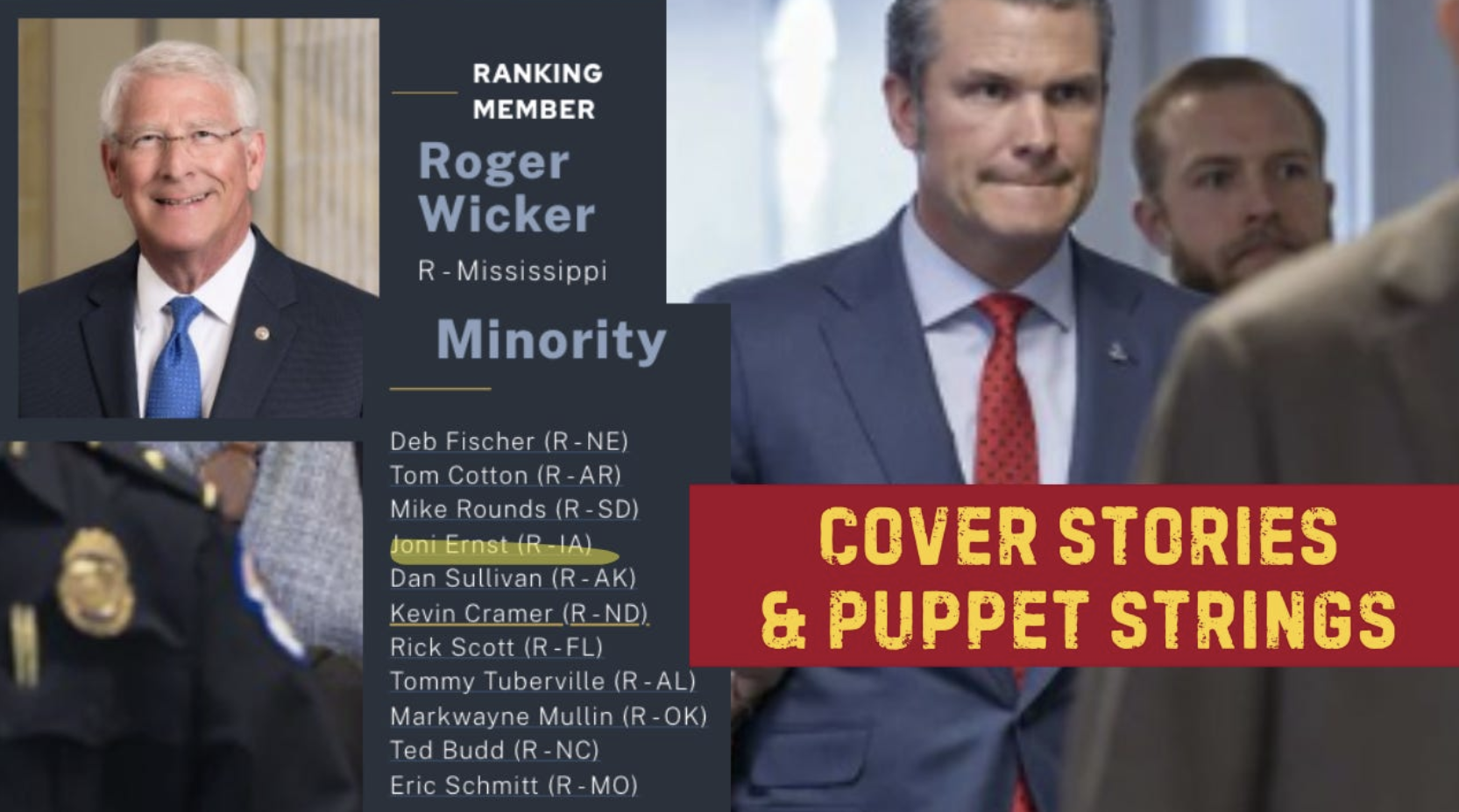
Please Follow us on Gab, Minds, Telegram, Rumble, Truth Social, Gettr, Twitter
The re-election of President Donald Trump has brought to the forefront the urgent need for constitutional amendments to address critical issues plaguing the nation. While election integrity and the fight against progressive liberalism remain paramount, establishing term limits for elected federal offices and powerful positions within the federal bureaucracy cannot be overlooked. The Convention of States (COS) project, supported by numerous legislators, including Speaker of the House Mike Johnson, aims to establish term limits, reign in the oppressive power of the federal bureaucracy, and ensure responsible government spending by balancing the budget in a manner that does not increase taxation on an already overtaxed nation.
‘NO AD’ subscription for CDM! Sign up here and support real investigative journalism and help save the republic!‘
The COS is a growing movement that seeks to invoke Article V of the U.S. Constitution, allowing states to call a convention to propose amendments. This approach bypasses the need for congressional approval and places the power to amend the Constitution directly in the hands of the states. The COS has gained significant traction, with 19 states already passing resolutions supporting an Article V convention. This effort dovetails with earlier efforts to hold a Balanced Budget Convention, which started over half a century ago. This earlier effort has more than the required 34 states to hold a Convention, and now the legal wrangling will likely begin to make it happen.
The idea of an Article V convention is not new; Colonel George Mason first proposed it during the Constitutional Convention in 1787. Mason, a fervent advocate for states' rights, recognized the potential for the federal government to become tyrannical and believed that the states should be able to propose amendments to the Constitution when the other branches of government failed to do so. His foresight has proven invaluable, as the self-interest of the legislative, executive, and judiciary branches has often hindered necessary changes to preserve the Republic.
The COS and its allies have identified several key areas where constitutional amendments are needed. These include term limits for federal officials, a balanced budget amendment, and measures to limit the federal government's power and strengthen states' rights. By addressing these issues, the COS hopes to create a more accountable and responsive government that prioritizes the needs of the people over the self-interest of politicians and bureaucrats.
Opponents of the Article V convention argue it could lead to a "runaway convention" where the entire Constitution is rewritten. However, this concern is unfounded, as the convention would be limited to proposing specific amendments agreed upon by the states. Moreover, any proposed amendments would still require ratification by three-fourths of the states, ensuring that only widely supported changes become part of the Constitution. Each state receives one vote regardless of population. Once an amendment is proposed by an Article V Convention and approved by the required number of states (three-fourths, or 38 states), it does not go to a popular vote of the citizens in each state. Instead, the ratification process takes place at the state legislative level. Each state legislature votes on whether to ratify the proposed Amendment. If the required number of state legislatures approve the Amendment, it becomes part of the U.S. Constitution. Therefore, it is critical that the electorate pays close attention to all state legislators and ensures that their positions on specific Amendments are clear. Additionally, this process will likely take years before enough states have made their voices heard.
Other criticisms include fears that a balanced budget amendment could increase taxation rates to balance a budget that funds a multitude of pork barrel projects and wasteful federal agencies. In comparison, term limits could remove experienced legislators and bureaucrats and replace them with inexperienced neophytes unable to maneuver the intricacies of a Byzantine bureaucracy.
The ratification process for constitutional amendments has varied in duration throughout U.S. history. The Bill of Rights, comprising the first ten amendments to the U.S. Constitution, originated during the initial Constitutional Convention held from May 25 to September 17, 1787, which replaced the Articles of Confederation and achieved ratification in 1791. The movement for women's suffrage in America began in the mid-19th century, with the Seneca Falls Convention in 1848 being a pivotal event. However, it took more than 70 years of activism and advocacy before the 19th Amendment was proposed and ratified. The 27th Amendment, which prohibits any law that would change congressional pay from taking effect until after an election, was originally proposed as part of the initial Bill of Rights on September 25, 1789. Its wording, which James Madison authored, reads: "No law, varying the compensation for the services of the Senators and Representatives, shall take effect, until an election of Representatives shall have intervened." Despite being proposed alongside the other nine amendments that were ratified in 1791, the 27th Amendment faced a much longer ratification process. It was not until May 7, 1992, over 202 years after its initial proposal, that the Amendment finally achieved the necessary ratification by three-fourths of the states, making it the longest-ratified Amendment in U.S. history.
On average, the ratification process for amendments has taken around one to two years, with some exceptions, like the 27th Amendment, which took much longer due to unique circumstances. Given the complexity of the currently proposed amendments by COS supporters, they must steel themselves for a long and intensive battle.
In conclusion, the re-election of President Trump has highlighted the need for significant constitutional reforms to address the issues facing the nation. The Convention of States, supported by conservative legislators and other groups working towards an Article V convention, offers a viable path to amend the Constitution and restore the balance of power between the states and the federal government. By following in the footsteps of Colonel George Mason and invoking the states' right to propose amendments, we can ensure that the Republic is preserved for generations to come.





















Douglas, you claim that a possible "runaway convention" is unfounded, as the convention would be limited. Limited by whom? Read history. The Constitution came from a meeting of State Legislators who were only supposed to amend the Articles of Confederation. However, there was no one there to limit them. Why do you have faith in the swamp creatures who inhabit State Legislatures? Answer me this: How many State Legislatures have outlawed computerized voting machines? That's who you trust?
Following the Annapolis convention of 1786, there was a call to fix the shortcomings of the Article of Confederation. Congress approved this call, to "render the federal Constitution adequate to the exigencies of Government and the preservation of the Union.” This was a much broader mandate the an Article V amending convention. I would recommend Timothy Dake's "Far From Unworkable" or Michael Kapic's "Conventions that made America. We had hundreds of conventions with no "run-aways'.
Well said, David. It's awful there are still people who believe our nation was founded via a "runaway" convention. I'm happy to see people like you who have done their research and learned the truth. The call was initially made by Virginia and, therefore, the subject of the convention was set by Virginia. States define the subject of a convention of states... not Congress.
The "runaway" Convention is a spurious argument that critics offer with no solution. COS IS the solution.
The Founding documents have never, repeat never been the problem. As one who has followed this process, for some 50 years, the amendments that have been emplaced have been. Anyone who thinks the 13th amendment has benefited is an imbecile. No, in any name: Art V Con http://www.slideshare.net/slideshow/embed_code/41085340
Name: BBA - http://www.slideshare.net/slideshow/embed_code/31271808
It seems common practice of opponents to conflate a "Con-Con" with an amending convention authorized in Article V. The fear mongering takes off from this erroneous assumption. Washington has gone beyond it's enumerated powers, and the States have constitutional power to propose corrections. States can restrict the topic via the commission of it's reps. We know how to properly run conventions. Any proposal must be ratified by 38 states. Difficult, but safe. Past errors are correctable.
The first 10 amendments have saved us from utter downfall, so I certainly take exception to the Founding document having "no problem". I stand with the Statesmen who felt the need for our Bill of Rights. And, Article V is VERY clear that any Article V convention is restricted to "proposing amendments" to the existing constitution. And, just as history creates the definition of "due process", history also shows us that the Application from the States limits the subject of the convention.
The Constitution has always been a living document, and Article V is just one element of its vitality.
Once again, a critic with no solutions. Personal attacks do not solve any problems.